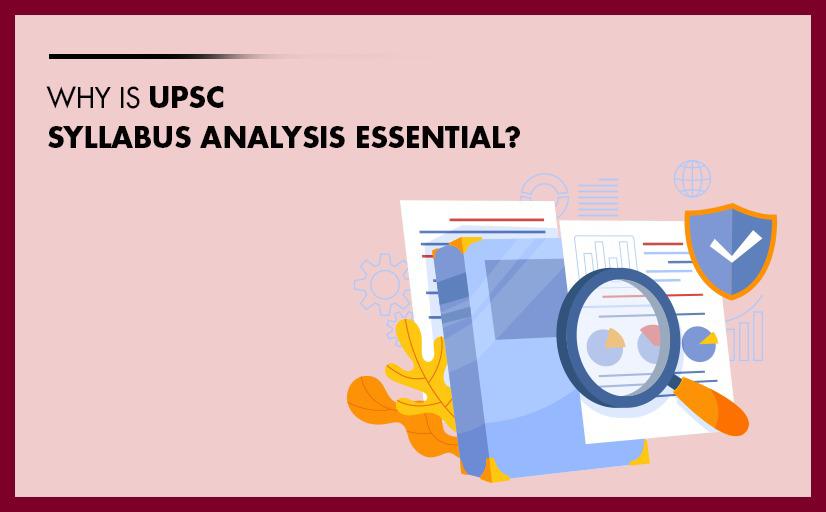
Why is UPSC Syllabus Analysis Essential?
Students around the country who opt to prepare for the UPSC Civil Services Exam are frequently confronted with a slew of questions
Why is UPSC Syllabus Analysis Essential?

Students around the country who opt to prepare for the UPSC Civil Services Exam are frequently confronted with a slew of questions. 'How Should I Prepare?', 'What is the Syllabus?', and so on. Indeed, one of the first things a Civil Services candidate should do is visit the UPSC website and get a syllabus copy before beginning preparation.
It is critical to focus your preparation for the Civil Services Examination. One must channel one's efforts such that one fulfills both the needs of the examination and the examiner's expectations. Let us recall our college days: wasn't it necessary to thoroughly review the syllabus copies of our semesters? The Civil Services Examination, which the UPSC administers, is no exception.
The UPSC Syllabus Analysis is discussed in detail in this post, and the suggestions below will help you to get started with your IAS Exam preparation:
The significance of UPSC Syllabus Analysis:
A frequent misunderstanding: Many applicants initially believe that ancient and medieval Indian history is covered in General Studies- I (Indian Heritage and Culture, History, and Geography of the World and Society). In reality, these topics are only covered in the Prelims level of the test. As a result, a precise knowledge of the syllabus's nature, breadth, and extent is required. The objective clarity from studying the UPSC analysis allows one to comprehend what to read, what not to read, and what sources to refer to.
What should a person do?
- Aspirants should grab a printout of the Civil Services Examination curriculum and tape it to their closet to ensure that they are aware of it and, at the very least, undertake a casual reading of it whenever feasible.
- It is also beneficial for applicants to divide each topic into subtopics and refer to specialized sources for each area. Once this broad framework is in place, candidates will find it easier to navigate the enormous expanse of the UPSC curriculum for the Civil Services Examination.
- Furthermore, studying past years' question papers helps to put the syllabus into better perspective since the real breadth and complexity of the curriculum can sometimes be better understood after evaluating questions posed around the relevant themes.
Examining the UPSC Syllabus and Its Benefits:
Analyzing the UPSC Syllabus before beginning test preparation benefits applicants in various ways. The following are the benefits of studying the IAS Syllabus beforehand:
- UPSC announces the complete curriculum in the official notice. Candidates can go over the syllabus subjects, assess their knowledge with them, and analyze their strengths and weaknesses.
- Candidates can follow a predetermined time frame and study plan based on the syllabus, in which time is spent evenly preparing each subject so that all topics are covered comprehensively.
- It will also help the applicant pick an optional topic if they browse through the list of all the optionals available and choose the most appropriate optional subject based on their strengths.
Candidates can adhere to a specified time frame and study plan based on the syllabus, in which time is allocated equally to the preparation of each subject so that all topics are thoroughly covered.
